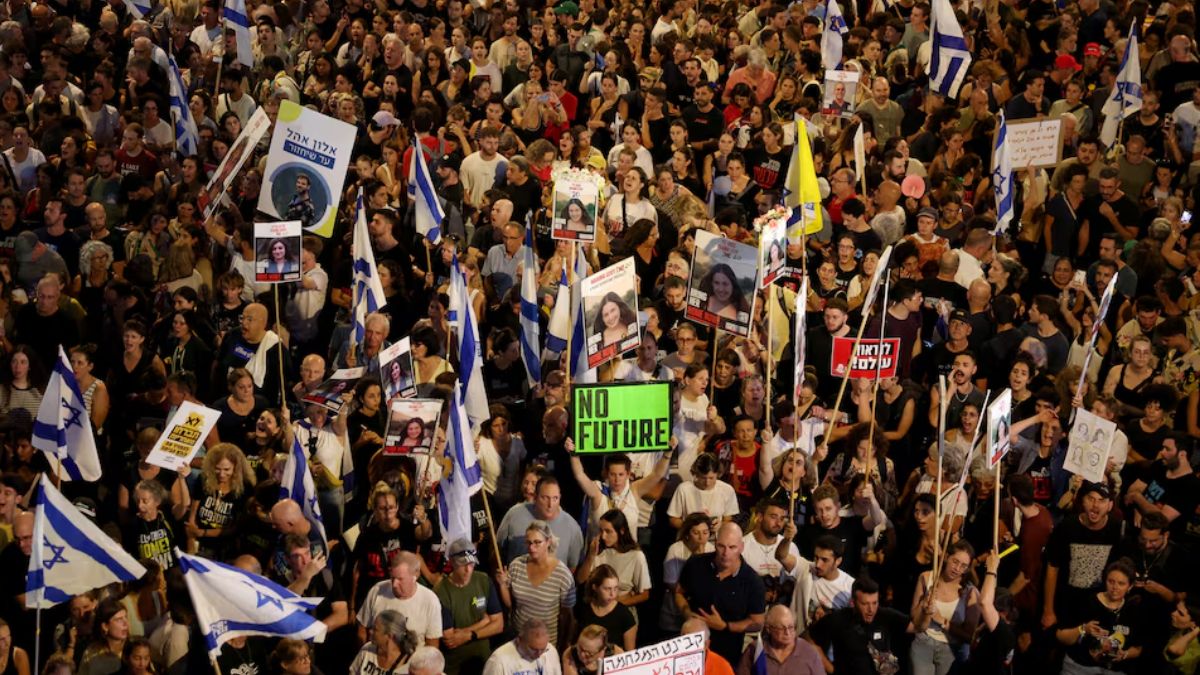Israel’s main international airport, Ben Gurion International Airport, suspended flights on Monday as part of a nationwide strike in response to public outrage over the killing of six hostages by Hamas in Gaza.
The strike, organised by the Histadrut labor union, reflects growing frustration with Prime Minister Benjamin Netanyahu’s handling of the hostage situation.
Histadrut’s chairman, Arnon Bar-David, warned that the union could shut down the entire economy, stating that Israel is in a “downward spiral” amid ongoing violence. The airport confirmed it would halt both departures and arrivals for two hours starting at 8 a.m. local time (1 a.m. ET).
The general strike, which began Monday morning, aims to pressure the government to negotiate a ceasefire-for-hostages deal. This follows the discovery of six dead hostages, including Israeli-American Hersh Goldberg-Polin, whose bodies were found in a Hamas tunnel in Rafah. Their deaths have intensified calls for action and strained ongoing ceasefire negotiations.
Protests erupted across Israeli cities on Sunday, with demonstrators demanding Netanyahu’s resignation and a more effective response to the hostage crisis. In Tel Aviv, some protesters blocked a major avenue on Monday morning.
The strike’s impact extends beyond the airport, affecting various public services and institutions. Municipalities including Tel Aviv and Haifa have joined the strike, and government ministries responsible for essential services, such as parts of the Prime Minister’s Office and the Interior Ministry, are also participating.
Healthcare facilities may also face disruptions, although they will continue to operate on an emergency basis.
The country’s teachers’ union has announced it will not participate in the strike, though support staff at schools will, potentially impacting educational activities.
Impact Shorts
More ShortsMajor universities, including Hebrew University of Jerusalem and Tel Aviv University, have confirmed their participation in the strike. The Hebrew University’s spokesperson indicated that this shutdown will be more extensive than previous measures, including all activities except for essential exams.
In response to the strike, Israel’s far-right Finance Minister Bezalel Smotrich has requested the country’s Attorney General, Gali Baharav-Miara, to seek urgent injunctions to block the action.
Smotrich argues that the strike will harm the wartime economy and set a dangerous precedent. A legal hearing on this request is scheduled for Monday morning.
)